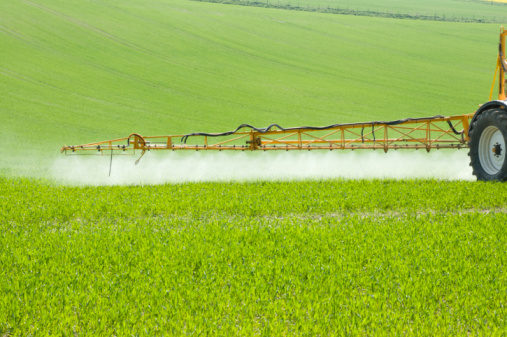Montreal and Cambridge, MA—A study published in Pediatrics in May found a correlation between pesticides and the presence of attention deficit hyperactivity disorder (ADHD) in children. Statistics show that children with high levels of organophosphate pesticides in their urine were more likely to develop ADHD than children who had undetectable levels. In the United States, 4.5 million children ages five to 17 have been diagnosed with ADHD as of 2006, according to the Centers for Disease Control and Prevention Web site, and the study is the first to form a link between ADHD and pesticides.
Using cross-sectional data from the National Health and Nutrition Examination Survey conducted from 2000 to 2004, researchers from the University of Montreal and Harvard University used urinary samples of 1,139 children ages eight to 15 and interviewed their parents to determine how many had ADHD. They diagnosed 119 of these children with the disorder and found that children with higher urinary dialkyl phosphate concentrations, generally found in organophosphate pesticides, were twice as likely to be diagnosed with ADHD. Even with low levels of pesticides in the urine, the disorder was present.
Organophosphates are a group of pesticides used in agricu lture and non-agricultural sites that affect functioning of the nervous system, according to the Environmental Protection Agency Web site, and were originally used as chemical warfare agents in World War II. Today, they are one of the most widely used pesticides to protect fruits and vegetables, but increased exposure can cause gastrointestinal upset, muscle weakness, and hypertension, among other symptoms, according to Scientific Electronic Library Online. The damage that organophosphates cause to nerve connections in the brain may be what links them to ADHD.
lture and non-agricultural sites that affect functioning of the nervous system, according to the Environmental Protection Agency Web site, and were originally used as chemical warfare agents in World War II. Today, they are one of the most widely used pesticides to protect fruits and vegetables, but increased exposure can cause gastrointestinal upset, muscle weakness, and hypertension, among other symptoms, according to Scientific Electronic Library Online. The damage that organophosphates cause to nerve connections in the brain may be what links them to ADHD.
The 2008–2009 President’s Cancer Panel Report, also released in May, ascertains that another health risk associated with pesticides is cancer. The report underlines the increased risk of certain cancers among farmers and their children since they are continually exposed to pesticides. Charles Benbrook, Ph.D., chief scientist at The Organic Center, says the panel’s “message is historic, because it breaks with 30 years of scientific dogma that holds that chemicals in the environment are not major causes of cancer… The Cancer Panel deserves a lot of credit for having the courage to stand up to the cancer establishment, by focusing on prevention.” It includes the findings that leukemia prevalence rates are consistently higher among children who grow up on farms and that exposure to the chemicals found in pesticides has been linked to brain/central nervous system damage, breast, colon, lung, ovarian, pancreatic, kidney, testicular and stomach cancers; Hodgkin and non-Hodgkin lymphoma; multiple myeloma and soft tissue sarcoma.
The panel recognized that children are more susceptible to damage from environmental carcinogens and endocrine-disrupting compounds than adults because of their smaller body mass, rapid growth and absorption of chemicals from the mother in the womb. This exposure can trigger “some deviation from perfection in laying the foundation for a person's immune system…[which might] give cancer a foothold,” says Benbrook.
The report states that to decrease exposure to pesticides, parents should buy organic produce and free-range meat and thoroughly wash conventionally grown produce. Benbrook agrees that “growing and consuming organic fruits and vegetables is one of the obvious, proven ways to lower exposures to a host of chemicals than can cause cancer or promote the growth of cancerous cell masses.”
Published in WholeFoods Magazine, July 2010 (published online ahead of print on May 27, 2010)










